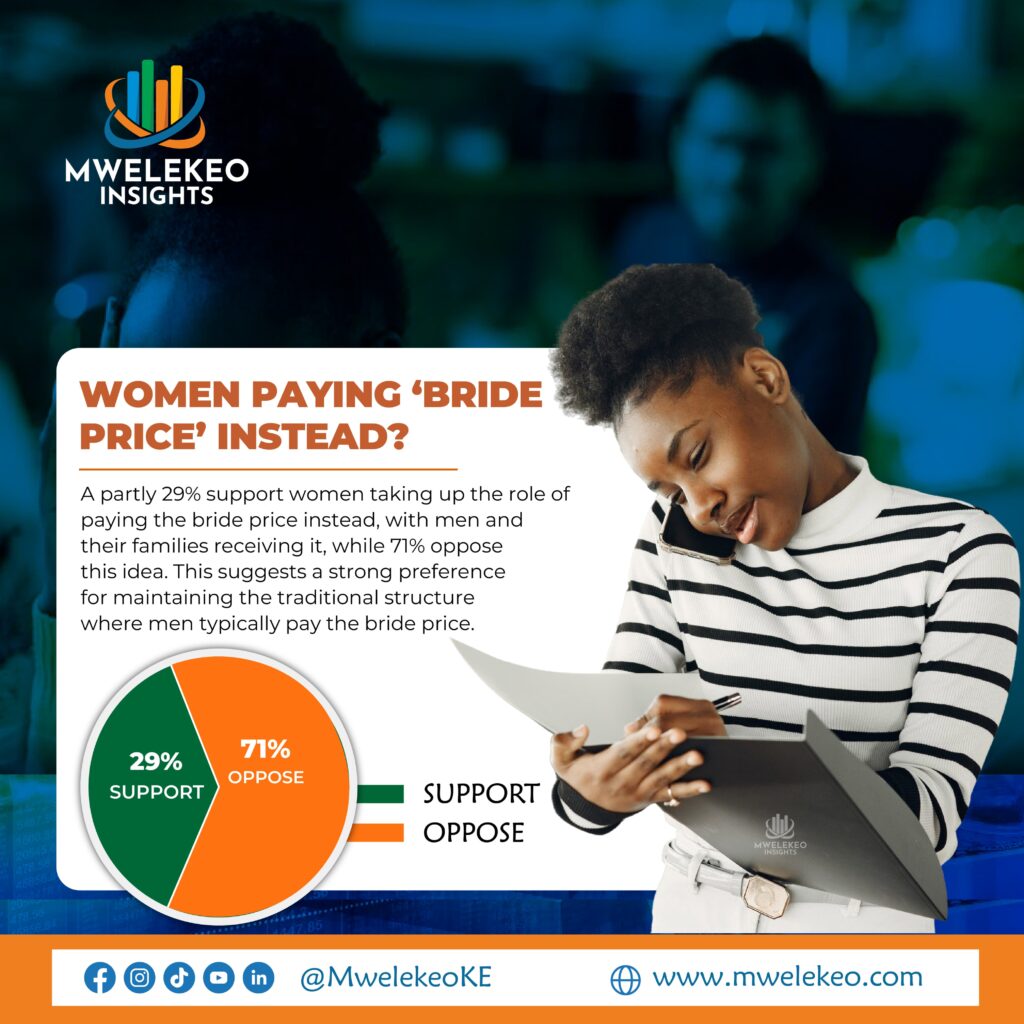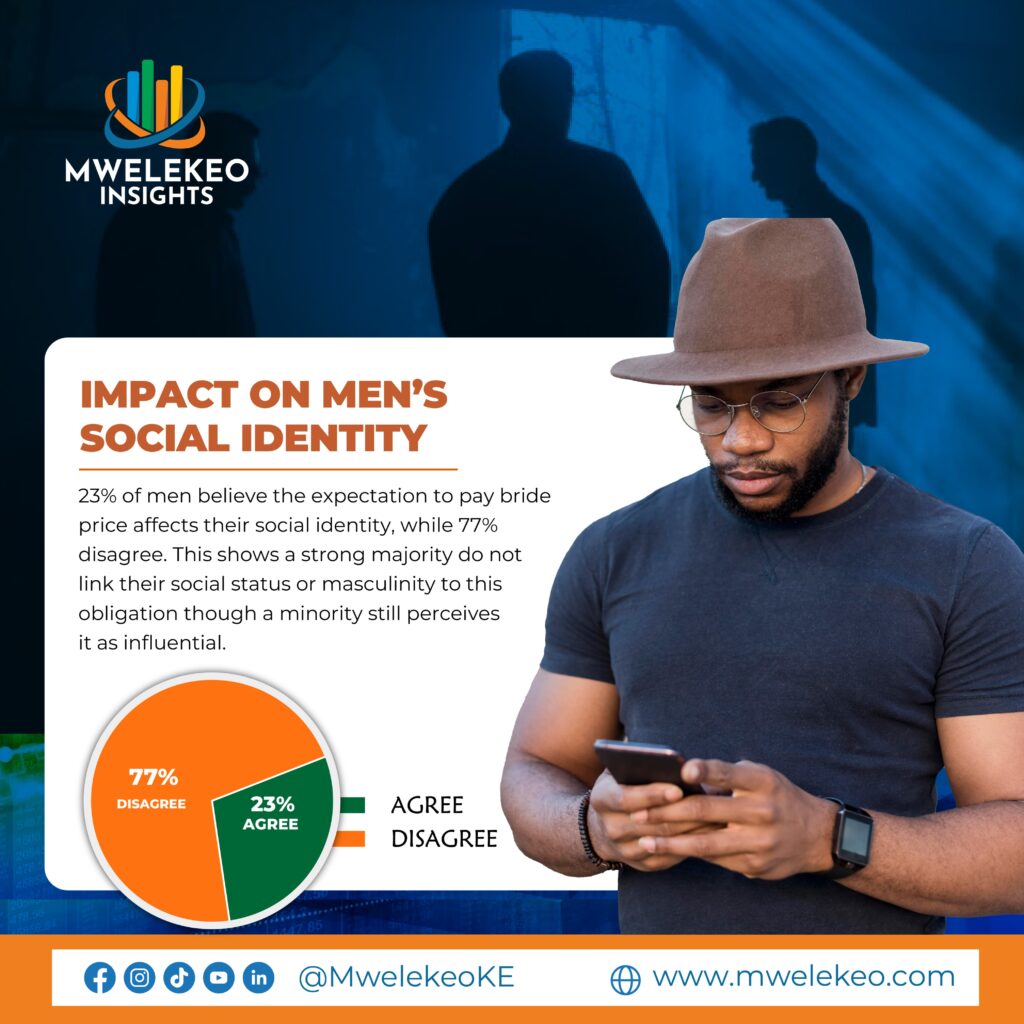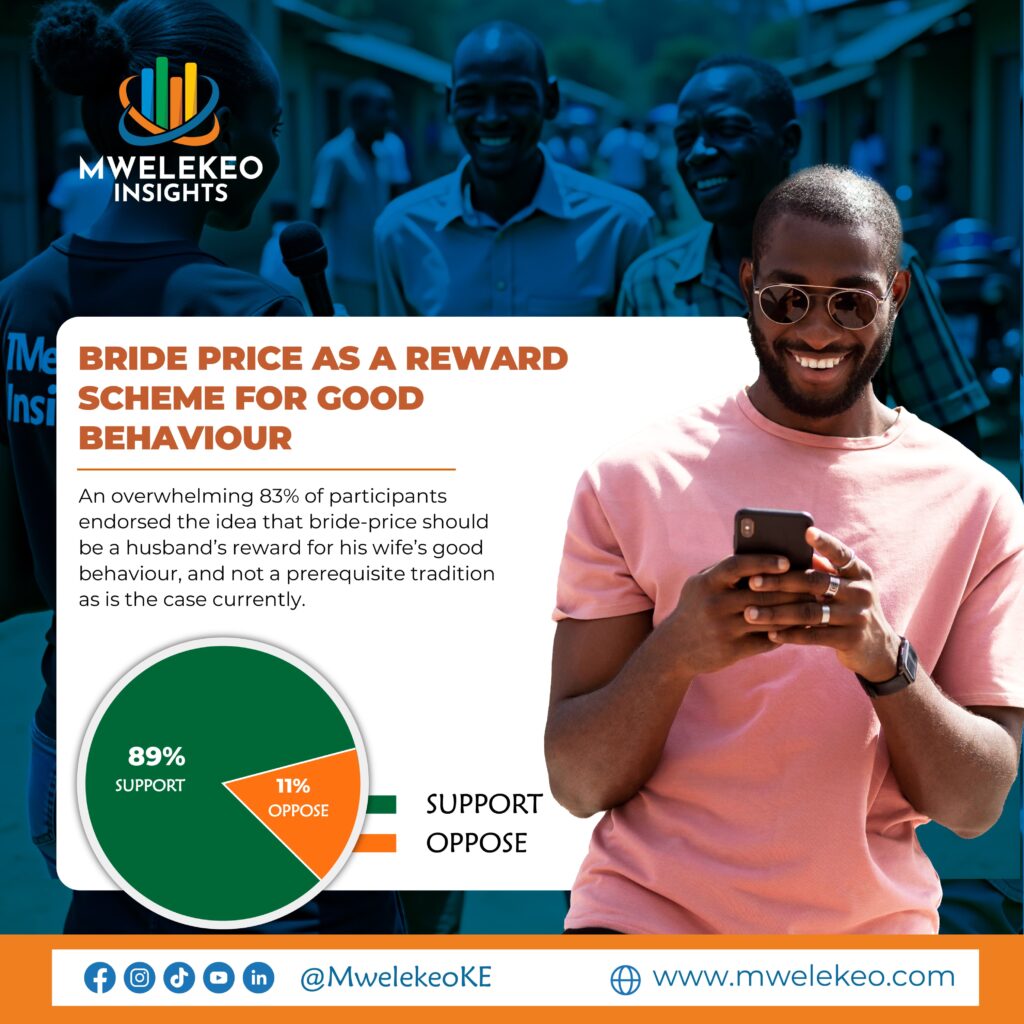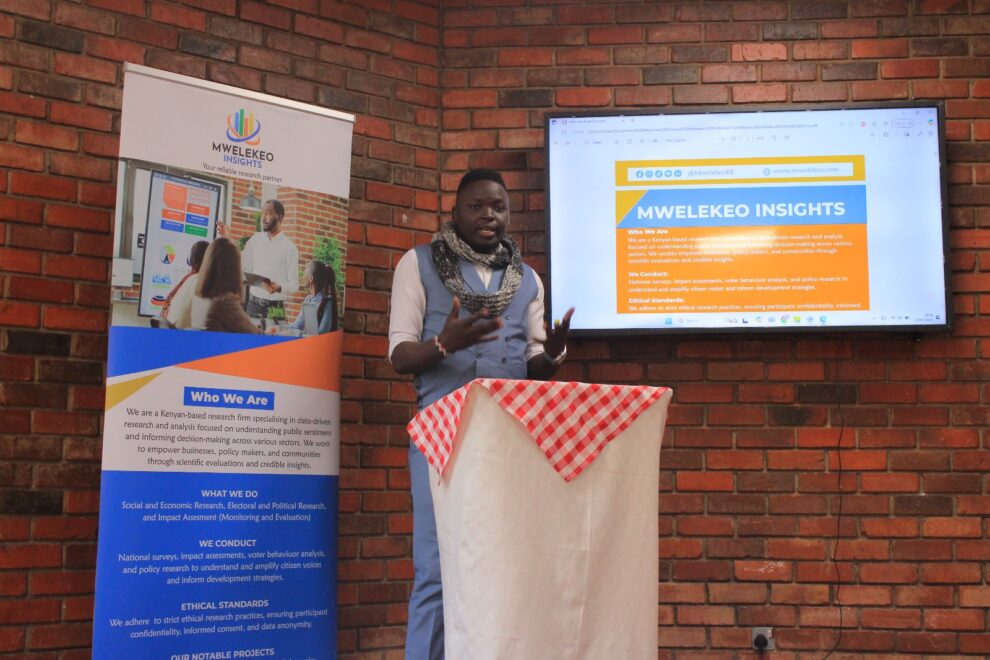A new study by Mwelekeo Insights has revealed that Kenyan men are deeply divided over whether the tradition of bride price should be abolished.
According to the findings, 48% of men aged 18 to 45 support getting rid of the practice altogether, while 52% still want it to remain.

This shows how the topic remains sensitive, with different views depending on age, location, education, and personal beliefs.
While some men see bride price as an outdated custom that no longer fits with modern values, others believe it is still an important cultural symbol.
Those in support of abolishing it argue that the tradition can put financial pressure on men and make marriage feel like a transaction.
Many of them, especially those from urban areas or with higher education, say that bride price makes women appear as property being bought, which is against the idea of gender equality.
At the same time, the study found that a strong majority 71% oppose the idea of women paying bride price instead of men.

Only 29% support that shift, showing that even among those who want change, many are still tied to traditional roles.
Most men still believe that paying bride price is the man’s responsibility, and changing this would go against cultural expectations
.Mwelekeo Insights also looked at how economic challenges affect views on bride price. For younger men especially, the costs of paying bride price are seen as too high. Many say they have had to delay marriage or avoid it completely because they can’t afford what the bride’s family is asking.
This financial burden is one of the main reasons why some men want the tradition to change or even end.
Religious and cultural values also play a big role. About 66% of men believe bride price fits with their religion and cultural norms, while 34% think these traditions can be changed to better match today’s society.

The younger and more exposed to global views a man is, the more likely he is to question the practice.
Some told Mwelekeo Insights that bride price affects their emotional well-being. Around 58% said the pressure to pay affects them emotionally, with some feeling stressed or even ashamed if they can’t meet expectations.

Still, 77% said it doesn’t affect their social identity, showing that while men feel pressure, most don’t link bride price to how others view them in society.

Interestingly, many men are open to alternative ideas rather than a total end to the tradition. About 65% support the idea of cost-sharing the bride price with the wife.

A large number, 89%, are in favor of gradual payments over time instead of one big payment. Others prefer turning it into a symbolic gesture or mutual agreement between families rather than a heavy financial demand.

What the Mwelekeo Insights study shows is that men’s views on bride price are not the same. While some defend it as a symbol of respect and family unity, others see it as outdated and unfair.
Most do not want to throw it away completely, but they want change. There is a growing call among men for open conversations, fairness, and reforms that reflect both culture and today’s realities.





















Add Comment